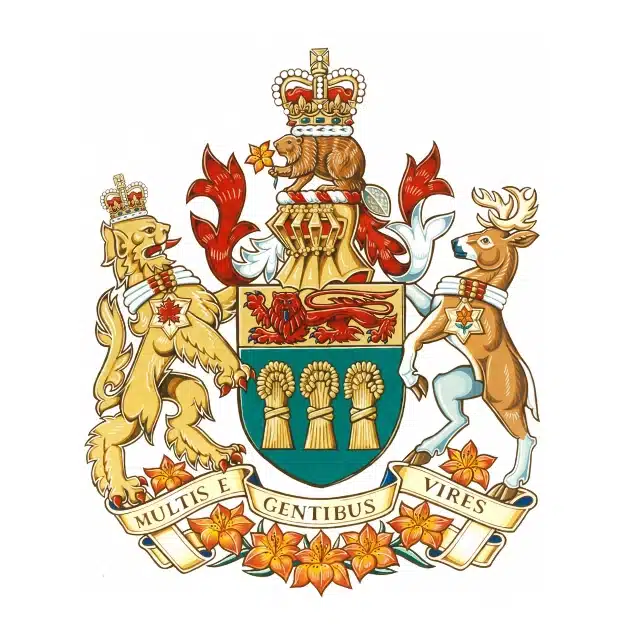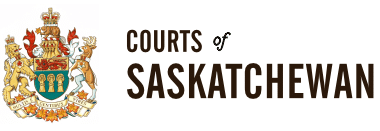Publication Bans
Court of King's Bench | SaskatchewanCourts of Saskatchewan
Publication Bans
Court of King’s Bench
About Publication Bans
Publication bans prohibit the publication or disclosure of certain information in otherwise open court proceedings. For example, a ban might prohibit the publication of any information that would identify a particular witness or victim in a criminal proceeding. A ban might also prohibit the publication of any details or evidence disclosed at a bail hearing.
There are two kinds of publication bans: mandatory and discretionary.
Some publication bans do not require a court order and are in effect automatically by operation of statute. These are mandatory publication bans and you can find more information about them farther down on this page.
Other publication bans may be ordered by the Court of King’s Bench pursuant to either statute or the Court’s inherent jurisdiction. These are known as discretionary publication bans.
Responsibility of the Media and Public
It is the responsibility of members of the public who attend court proceedings or who see or obtain copies of court files or records to inform themselves of any restrictions that limit the publication of court records or proceedings, including both mandatory and discretionary publication bans, and to comply with all publication bans.

Discretionary Publication Ban List
The Court of King’s Bench provides a public list of discretionary publication bans ordered in Saskatchewan in both civil and criminal proceedings. The posted list is subject to the following limitations:
- The list may not contain all current publication bans issued prior to March 15, 2023.
- The list may not contain publication bans ordered by the Provincial Court which apply to cases proceeding at the Court of King’s Bench.
- Discretionary publication ban orders will be posted as soon as possible upon being made.
- The precise terms of a publication ban order may not necessarily be posted to this site. It is your responsibility to obtain the precise terms of the order if required by contacting the appropriate Registrar’s Office.
- The list may not contain publication bans ordered pursuant to section 525(6) of the Criminal Code relating to the detention review application and/or hearing process, as described in Criminal Practice Directive #8.
- Information regarding automatic publication bans which are in effect by operation of statute (i.e. mandatory publication bans) is not included on this website. Members of the public are expected to inform themselves of the circumstances under which mandatory bans are in effect.
It is the responsibility of persons who attend court proceedings or who see or obtain copies of court files or records, to inform themselves of any legal restrictions that limit publication of court records or proceedings, including both mandatory and discretionary publication bans, and to comply with all publication bans.
Mandatory Publication Bans
Some publication bans do not require a court order and are in effect automatically by operation of statute. These are known as mandatory publication bans. Additional information about mandatory publication bans is included below.
Criminal Code
| Section 278.9(1) | This section makes it a criminal offence to publish information regarding an application under s.278.3 or a hearing under s.278.4(1) or 278.6(2). These applications and hearings are required in sexual offence proceedings where an accused person seeks to obtain records pertaining to a complainant or a witness. The ban on publication also applies to the determination and reasons of the judge on the application unless he or she determines that the decision can be published. |
| Section 278.95(1) | This section makes it a criminal offence to publish information regarding an application made under s.278.93 or a hearing held under s.278.94. These applications and hearings are required in sexual offence proceedings to determine the admissibility of evidence under s.276(2) (sexual activity of the complainant) or s.278.92(2) (records of the complainant that are in the accused’s possession or control). The ban on publication extends to the decision of the judge under s.278.93(4) unless he or she determines that the decision can be published. It also applies to the determination and reasons of the judge under s.278.94(4) unless the determination is that the evidence is admissible or the judge orders that the decision can be published. |
| Section 542(2) | This section makes it a criminal offence to publish an admission or confession that was given in evidence at a preliminary inquiry unless the accused has been discharged or, if the accused is ordered to stand trial, the trial has ended. |
| Section 648(1) | This section makes it a criminal offence to publish information about any portion of a jury trial which takes place in the absence of the jury before the jury begins deliberations on its verdict. |
| Section 672.51(11) | This section deals with disposition hearings under Part XX.1 (Mental Disorder) of the Criminal Code and prohibits the publication of any disposition information (as defined in s.672.51) that is withheld or any parts of the proceeding from which the accused was excluded. |
Youth Criminal Justice Act (YCJA)
| Section 110(1) | This section provides that no person shall publish the name of, or any other information related to, a young person if it would identify the young person as dealt with under the YCJA. This ban does not apply where the information relates to a young person who has received an adult sentence. The ban may also not apply in circumstances where the young person has been convicted of a presumptive offence and the court has imposed a youth sentence. However, the judge has the discretion in such cases to impose a publication ban pursuant to s.75. Presumptive offences include murder, attempted murder, manslaughter, and aggravated sexual assault. |
| Section 111(1) | This section provides that no person shall publish the name or other identifying information with respect to an individual under the age of 18 who has been a witness or victim in connection with an offence committed or alleged to have been committed by a young person. |
Sex Offender Information and Registration (SOIRA)
| Section 16(4) | This section provides that no person shall disclose any information that is collected pursuant to an order under SOIRA or the fact that information relating to a person is collected under SOIRA. |
Criminal Practice Directive #2 – Access to Jury Lists and Juror Information
| Criminal Practice Directive #2 |
This Practice Directive prohibits the disclosure of the name and other information of persons summoned for jury service except as necessary by Crown and Defence. |
COURT RESOURCES
EXTERNAL RESOURCES
SOCIAL MEDIA
